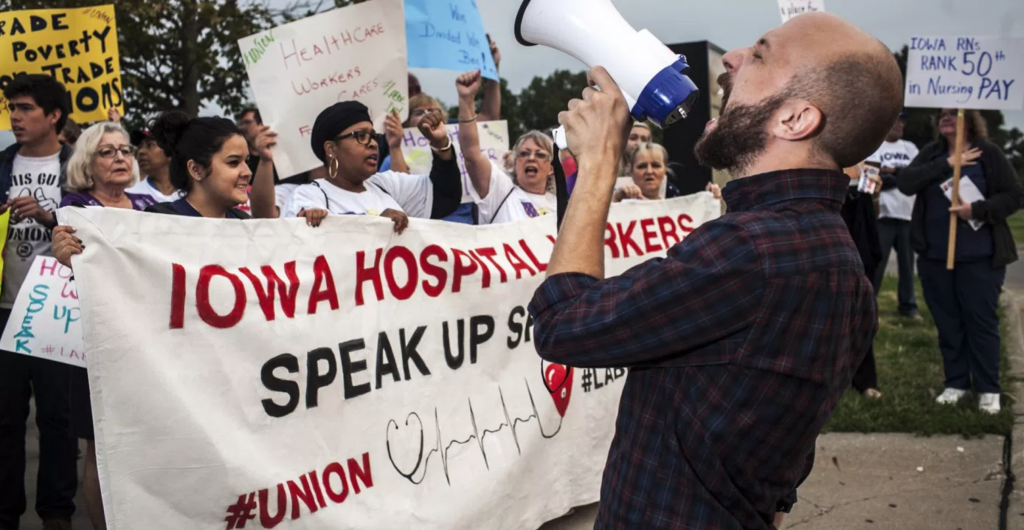Working-class power in Iowa was the subject of a April 7 event.
The University of Iowa Labor Center and Iowa Labor History Society brought together a collection of historians, union representatives, and workers to the University Capitol Center to discuss the past, present, and immediate future of working-class power.
The event featured histories of labor movements in Iowa and contextualized them with similar movements in the United States.
One of the case studies was the 1938 Maytag Strike in Newton, Iowa, in a presentation by Jennifer Sherer, the director of the UI Labor Center. The presentation was adapted from *Radical Unionism in the Midwest*, by Rosemary Feurer.
The presentation recounted the legal battles between Maytag Corp., a company called the “workshop of Iowa” that influenced nearly every aspect of Newton and the low-wage workforce.
Maytag’s workers were inspired by sit-down strikes across the Midwest and organized their union, UE Local 1116 in one week. After years of back-and-forth struggle, pickets, legal action, and armed response, the workers got a new contract.
Another presentation looked at the larger picture of labor conflict, discussing the 1968 sanitation strike in Memphis, Tennessee, tying it in with the Civil Rights Movement. Matt Glasson, labor educator at the UI Labor Center, emphasized the support Dr. Martin Luther King Jr. provided the strikers in Memphis and for other labor movements in the country.
“We like to forget that he was a fighter for union justice, we like to forget that he was a leftist, that he was an antiwar activist,” Glasson said. “We want to put him in that narrow range of being just a civil-rights leader.”
RELATED: University of Iowa students rally against graduate student tax
Tom Hayes, the secretary-treasurer and public sector representative for LiUNA Local 177, told stories of relatively successful public-sector union negotiations in Iowa City and the Quad City area. He said that one of the things he tries to avoid in public campaigns is getting too deep into “inside baseball and the labor-management stuff.” He said it makes the public’s eyes glaze over.
“What they care about are secretaries in school who take care of their kids, custodians who keep the schools clean,” Hayes said. “They don’t want to hear about permissives, they want to hear about people. That’s the story to tell, and that’s what we’re going to continue to focus on.”
Bailey Kelley, the president of UE Local 896/COGS, discussed protesting the graduate-student tax in the GOP tax bill in solidarity with nationwide graduate-student protests. The graduate-student-tax provision was ultimately scrapped.
Kelley described COGS’ position as unique in that every May, it loses around one-third of its workforce through graduation. She said that over the last 20 years, COGS has made a huge difference for the graduate students on campus.
RELATED: The changing landscape of student protest in higher education
Before COGS was formed around 20 years ago, Kelley said, the UI was at the “very bottom of the Big Ten,” but since then, grad students have made gains in such items as health insurance and tuition waivers, difference-makers to graduate students.



